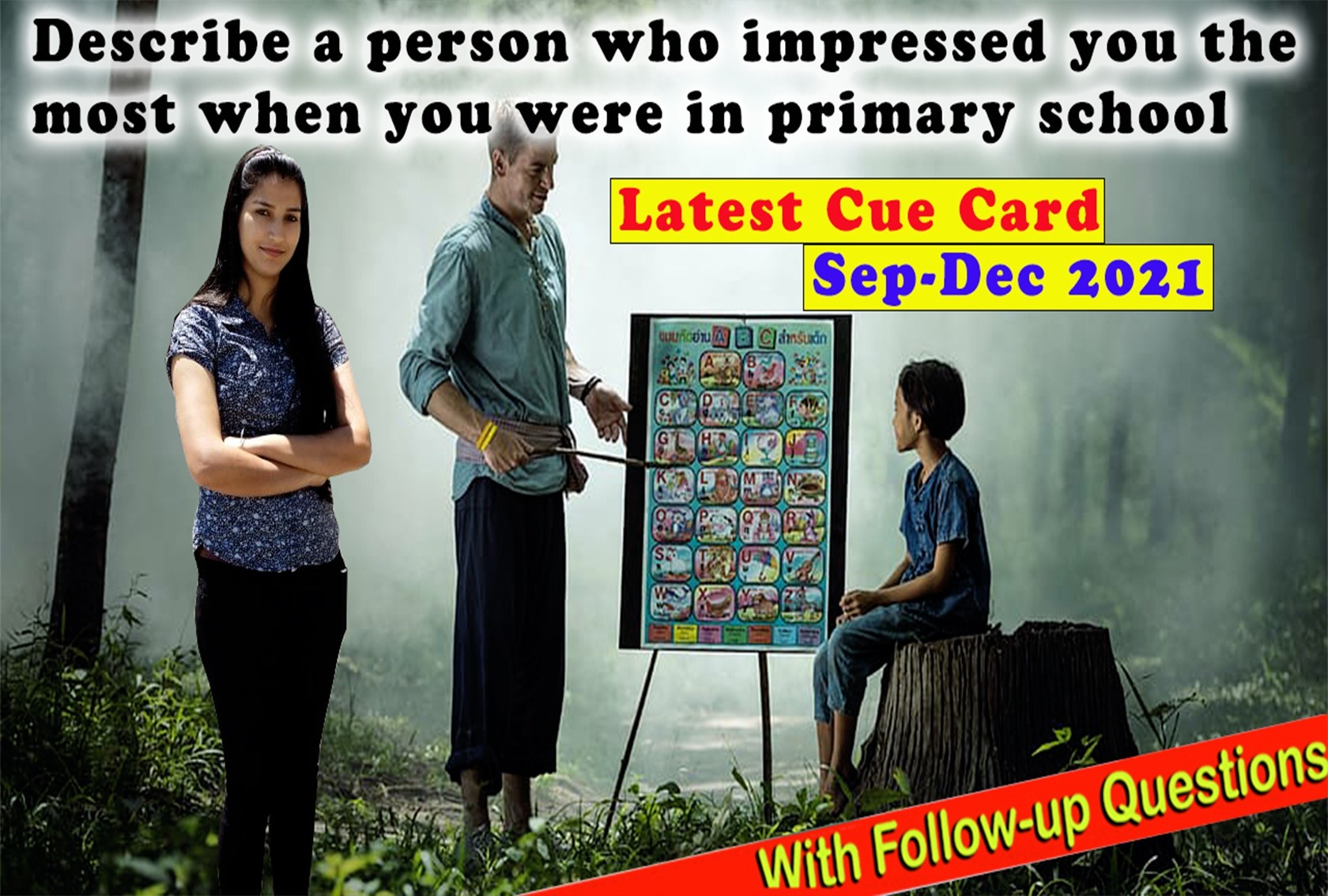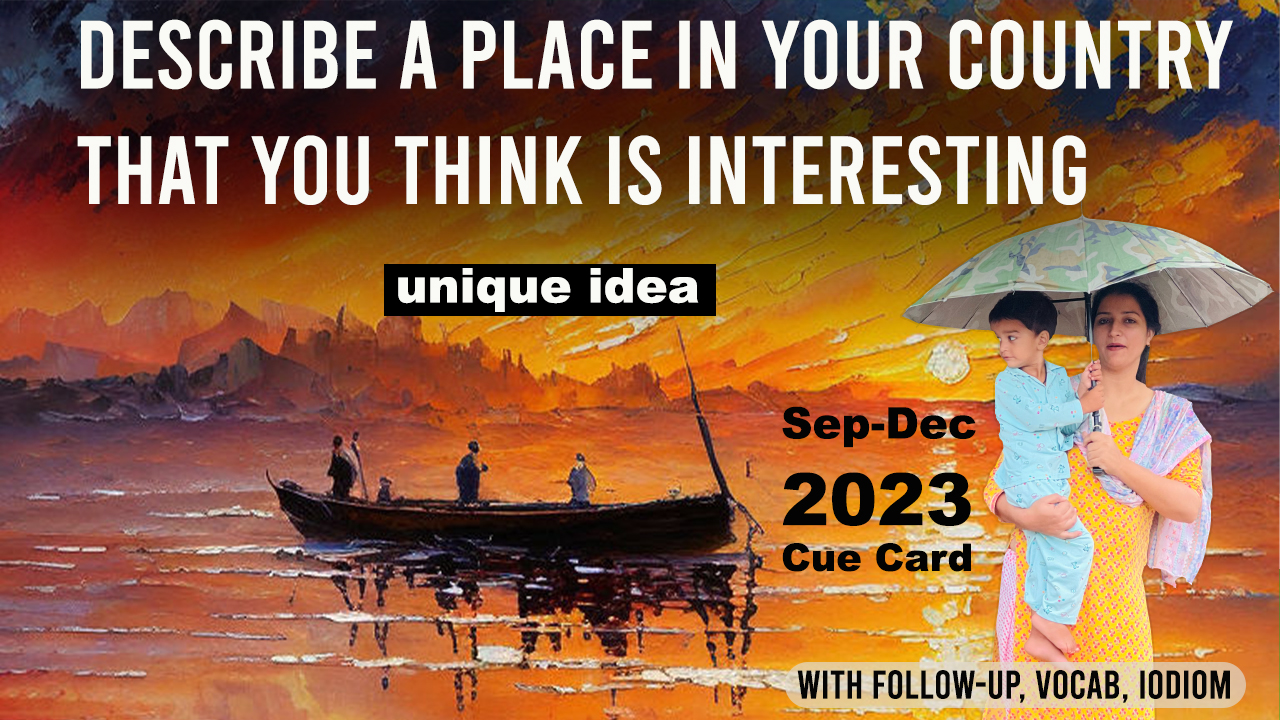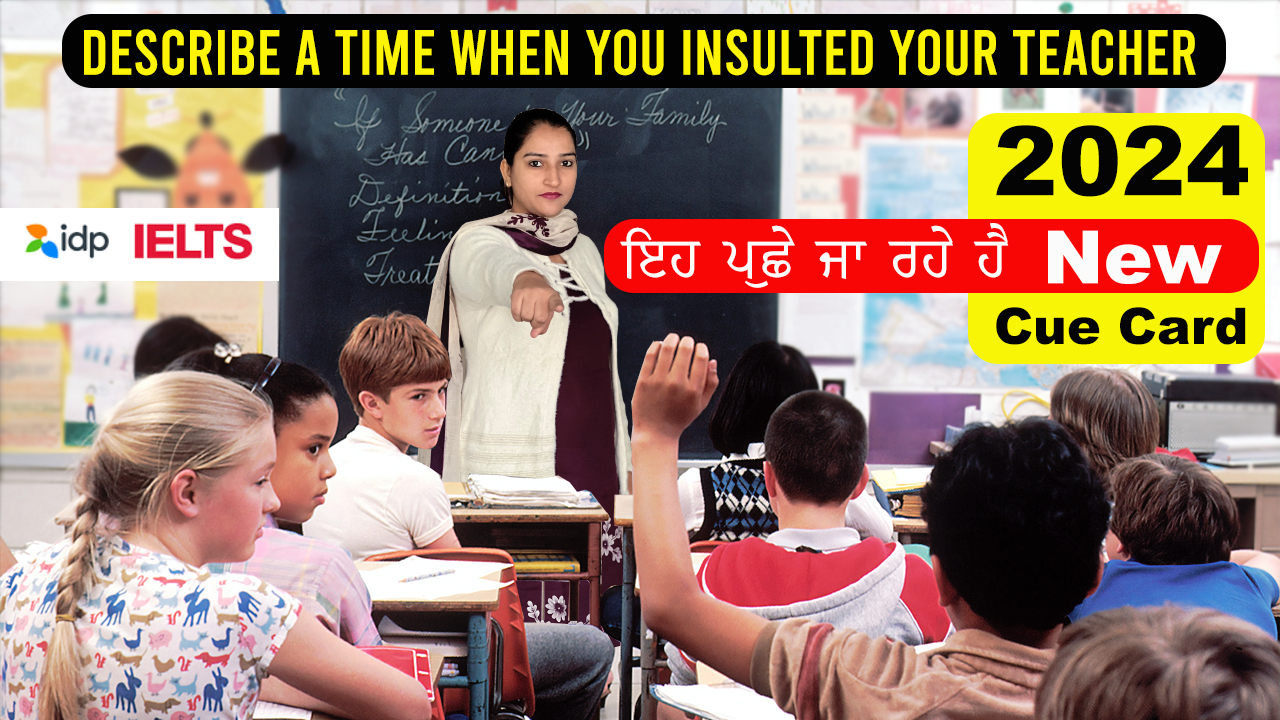Where it is
How you knew it
What special features it has
And explain why you think it is interesting
Vocab
- Renowned
- Plethora
- Privilege
- Picturesque place
- Prominent attraction
- Hustle and bustle
- Rejuvenate
- Tranquillity
- Captivating place
India is renowned for its rich diversity and a plethora of famous destinations, but one that holds a special place in my heart is Sukhna Lake, a well-known spot in Chandigarh. I had the privilege of visiting this picturesque place during a school excursion in my 10th grade, and it left a lasting impression on me.
Sukhna Lake stands out as a prominent attraction in Chandigarh. What makes it special is its serene and clean environment. People often visit Sukhna Lake to escape the hustle and bustle of city life and rejuvenate their minds. During my visit, I was struck by the tranquility of the place, making it an ideal spot for relaxation and reflection.
One of the reasons why Sukhna Lake is interesting is because it’s a man-made lake. This artificial creation has not only added to the city’s beauty but also provided employment opportunities for local residents.
Another feature that adds to its charm is the availability of boating facilities. Visitors can rent paddle boats or rowboats, which allows them to experience the lake up close while enjoying the cool breeze and the stunning scenery.
In my opinion, what makes Sukhna Lake truly fascinating is its ability to offer a peaceful oasis within a bustling city. It provides a space for people to unwind, connect with nature, and take a break from their busy lives. The combination of its man-made design, employment opportunities, and recreational activities make Sukhna Lake a unique and captivating place in my country, India.
Follow-ups
- How can people access travel information?
People can access travel information through various means, including websites, mobile apps, and social media platforms dedicated to travel, as well as by contacting travel agencies or using traditional sources like guidebooks. Additionally, government websites and tourist information centers often provide valuable travel information for specific destinations.
- Do people have different personalities in different regions of your country?
Yes, people can have different personalities in different regions of a country due to cultural, historical, and environmental factors that shape their behavior and values. These regional differences can lead to variations in accents, customs, and social norms, contributing to distinct regional identities and personalities within the same country.
- What causes the differences between different regions of your country?
The differences between regions in a country are caused by things like unique histories, cultures, and environments. These factors shape the way people live, speak, and think in each region, creating distinct regional identities and customs.
- Is it just youngsters who like to try new things, or do people of your parent’s age also like to try new things?
People of all ages, including parent’s age, can enjoy trying new things. It’s not limited to just youngsters; curiosity and the willingness to explore new experiences can be found across different generations.
- Is a great tourist destination also a good place to live?
Not always. Tourist destinations can offer attractions and entertainment, but they may lack the practical aspects needed for a comfortable and affordable long-term living experience, like job opportunities and affordable housing.
- Why do people who go to live in small towns think these towns are more interesting than the big cities?
People who choose to live in small towns may find them more interesting than big cities because they appreciate the slower pace of life, close-knit communities, and a stronger connection to nature that small towns often offer. Additionally, they may value the sense of simplicity that small-town living provides compared to the hustle and bustle of urban environments.
- Do you think cities worth visiting is also suitable to live in?
In my opinion, suitability of a city for living often depends on individual preferences and priorities. While some cities that are worth visiting can also be great places to live due to their cultural amenities, job opportunities, and quality of life, others may be better suited for tourism due to factors like high living costs, overcrowding, or limited residential amenities.
- What is the difference between the people living in the city and people living in the countryside?
The main difference between people living in the city and those living in the countryside lies in their lifestyle and environment. City dwellers tend to experience a faster pace of life, greater access to amenities, and more job opportunities, while those in the countryside often enjoy a slower, more nature-oriented lifestyle with a stronger sense of community.
- What is the difference between big cities and small cities?
The primary difference between big cities and small cities is their population size and the scale of urban development. Big cities have larger populations, extensive infrastructure, and offer a wider range of amenities, job opportunities, and cultural attractions, while small cities typically have smaller populations and a more compact, often cozier community environment with fewer amenities and services.
- What is the difference between north and south part of your country?
In India, the north and south have different weather patterns. Up north, there are more distinct seasons with cold winters and hot summers, while in the south, it’s generally warm and tropical all year round. People, languages, food, and the history also vary a lot between the two areas, making them unique in their own ways.














Got a Questions?
Find us on Socials or Contact us and we’ll get back to you as soon as possible.